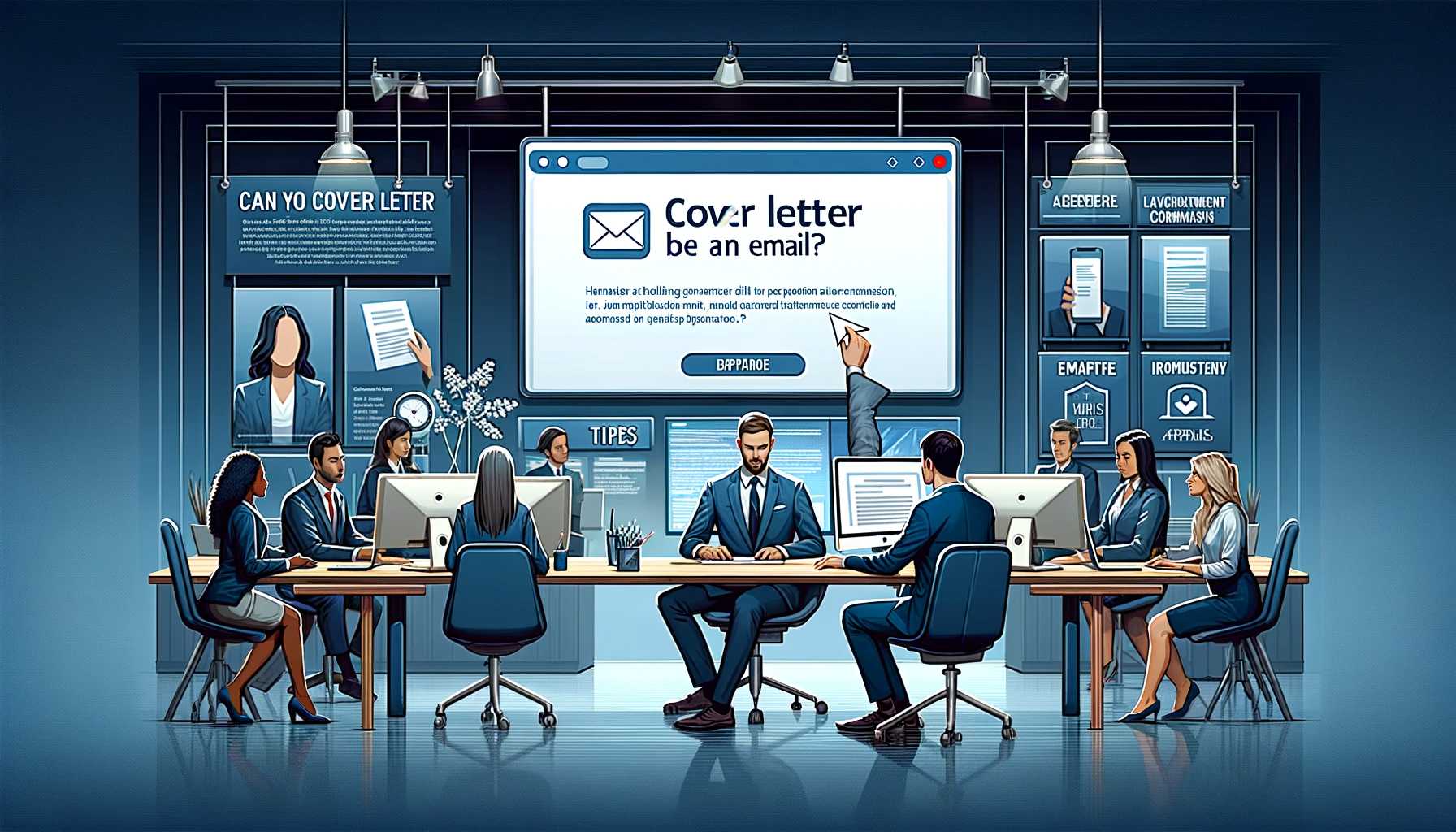Can a Cover Letter Be an Email? Exploring Modern Job Application Etiquette
In today's digital age, the way we communicate and interact has undergone a significant transformation. With the rise of technology and the prevalence of email communication, many job seekers find themselves wondering: can a cover letter be an email? The short answer is yes, absolutely! In this blog post, we'll delve into the evolving landscape of job application etiquette and explore whether an email can effectively serve as a cover letter in today's job market.
The Evolution of Job Application Methods
Traditional Cover Letters
Traditionally, a cover letter was a formal document submitted alongside a resume to introduce yourself to a prospective employer, express your interest in a specific job position, and highlight your qualifications, skills, and experiences relevant to the role. Cover letters were typically printed on professional letterhead, signed by the applicant, and sent via postal mail or hand-delivered to the employer.
Digital Age: The Rise of Email Communication
With the advent of the internet and the widespread use of email communication, the way we apply for jobs has evolved. Email has become a preferred method of communication for many employers and job seekers due to its convenience, speed, and efficiency. Job seekers can now send their resumes and cover letters electronically, saving time and resources compared to traditional methods.
Can an Email Serve as a Cover Letter?
Yes, It Can!
In today's digital era, an email can indeed serve as a cover letter when applying for a job. Many employers are open to receiving cover letters as email attachments or as the body of the email, along with the applicant's resume. However, it's essential to ensure that your email cover letter is professional, well-written, and tailored to the job position you're applying for.
Key Elements of an Email Cover Letter
Subject Line
The subject line of your email should be clear, concise, and relevant to the job position you're applying for. It should grab the employer's attention and encourage them to open your email. For example, "Application for [Job Title] – [Your Full Name]".
Salutation
Address the recipient by their name (e.g., "Dear Mr. Smith" or "Dear Ms. Johnson") to personalize your email and show respect for the employer. If you're unsure of the recipient's name, you can use a generic salutation like "Dear Hiring Manager" or "To Whom It May Concern".
Introduction
Begin your email cover letter with a brief introduction that includes your name, the job position you're applying for, and where you found the job posting. Express your interest in the role and mention any mutual connections or referrals if applicable.
Body of the Email
The body of your email should serve as the main content of your cover letter, where you introduce yourself, highlight your qualifications, skills, and experiences relevant to the job, and explain why you're the ideal candidate for the role. Keep your email cover letter concise, focused, and tailored to the job position you're applying for.
Conclusion and Call to Action
Conclude your email cover letter by expressing your enthusiasm for the role, summarizing your qualifications, and including a call to action, inviting the employer to review your resume and contact you to schedule an interview. Thank the employer for considering your application and sign off with a professional closing (e.g., "Sincerely" or "Best regards") followed by your full name.
Example of an Email Cover Letter
Subject: Application for Marketing Manager Position – Jane Doe
Dear Hiring Manager,
I am writing to express my interest in the Marketing Manager position at XYZ Company, as advertised on your company's website. With a Bachelor's degree in Marketing and over five years of experience in digital marketing and brand management, I am confident in my ability to contribute to your team and help XYZ Company achieve its marketing goals.
In my previous role as a Digital Marketing Specialist at ABC Company, I successfully developed and implemented digital marketing campaigns that increased website traffic by 30% and generated leads that resulted in a 20% increase in sales. My strong analytical skills, attention to detail, and passion for marketing make me a strong candidate for the Marketing Manager position at XYZ Company.
I am excited about the opportunity to join XYZ Company and contribute to your team. Please find attached my resume for your review. I look forward to the opportunity to discuss how my skills and experiences align with the needs of your team and contribute to the success of XYZ Company.
Thank you for considering my application. I look forward to hearing from you soon.
Sincerely,
Jane Doe
Conclusion: Embracing Modern Job Application Etiquette
In conclusion, an email can indeed serve as a cover letter when applying for a job in today's digital age. With proper formatting, a clear and concise structure, and a professional tone, an email cover letter can effectively introduce yourself to prospective employers, highlight your qualifications, and demonstrate your enthusiasm for the job position you're applying for.
However, while email cover letters offer convenience and efficiency, it's essential to ensure that they are well-written, personalized, and tailored to the job position and company you're applying to. Taking the time to craft a compelling email cover letter that showcases your skills, experiences, and passion for the role can set you apart from other applicants and increase your chances of securing an interview.
So, whether you choose to submit a traditional cover letter or opt for an email cover letter, remember to always maintain professionalism, attention to detail, and a focus on the needs and requirements of the job position you're applying for.
Here's to embracing modern job application etiquette, crafting compelling email cover letters, and taking the next step towards achieving your career goals in today's competitive job market









